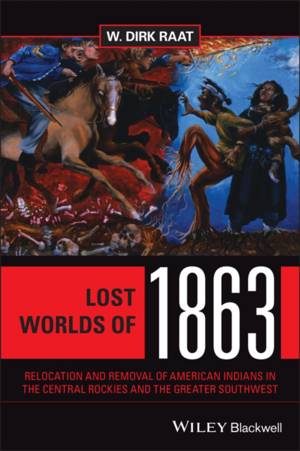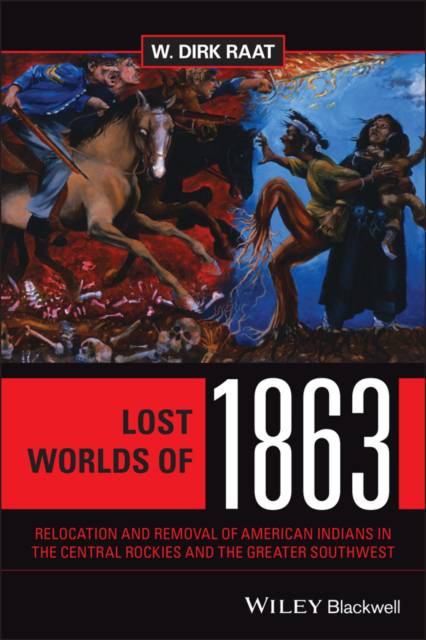
- Retrait gratuit dans votre magasin Club
- 7.000.000 titres dans notre catalogue
- Payer en toute sécurité
- Toujours un magasin près de chez vous
- Retrait gratuit dans votre magasin Club
- 7.000.000 titres dans notre catalogue
- Payer en toute sécurité
- Toujours un magasin près de chez vous
Lost Worlds of 1863
Relocation and Removal of American Indians in the Central Rockies and the Greater Southwest
W Dirk RaatDescription
A comparative history of the relocation and removal of indigenous societies in the Greater American Southwest during the mid-nineteenth century
Lost Worlds of 1863: Relocation and Removal of American Indians in the Central Rockies and the Greater Southwest offers a unique comparative narrative approach to the diaspora experiences of the Apaches, O'odham and Yaqui in Arizona and Sonora, the Navajo and Yavapai in Arizona, the Shoshone of Utah, the Utes of Colorado, the Northern Paiutes of Nevada and California, and other indigenous communities in the region. Focusing on the events of the year 1863, W. Dirk Raat provides an in-depth examination of the mid-nineteenth century genocide and devastation of the American Indian.
Addressing the loss of both the identity and the sacred landscape of indigenous peoples, the author compares various kinds of relocation between different indigenous groups ranging from the removal and assimilation policies of the United States government regarding the Navajo and Paiute people, to the outright massacre and extermination of the Bear River Shoshone. The book is organized around detailed individual case studies that include extensive histories of the pre-contact, Spanish, and Mexican worlds that created the context for the pivotal events of 1863. This important volume:
- Narrates the history of Indian communities such as the Yavapai, Apache, O'odham, and Navajo both before and after 1863
- Addresses how the American Indian has been able to survive genocide, and in some cases thrive in the present day
- Discusses topics including Indian slavery and Lincoln's Emancipation Proclamation, the Yaqui deportation, Apache prisoners of war, and Great Basin tribal politics
- Explores Indian ceremonial rites and belief systems to illustrate the relationship between sacred landscapes and personal identity
- Features sub-chapters on topics such as the Hopi-Navajo land controversy and Native American boarding schools
- Includes numerous maps and illustrations, contextualizing the content for readers
Lost Worlds of 1863: Relocation and Removal of American Indians in the Central Rockies and the Greater Southwest is essential reading for academics, students, and general readers with interest in Western history, Native American history, and the history of Indian-White relations in the United States and Mexico.
Spécifications
Parties prenantes
- Auteur(s) :
- Editeur:
Contenu
- Nombre de pages :
- 400
- Langue:
- Anglais
Caractéristiques
- EAN:
- 9781119777625
- Date de parution :
- 08-02-22
- Format:
- Livre broché
- Format numérique:
- Trade paperback (VS)
- Dimensions :
- 152 mm x 224 mm
- Poids :
- 635 g







